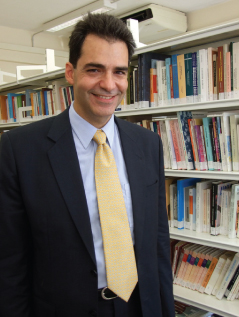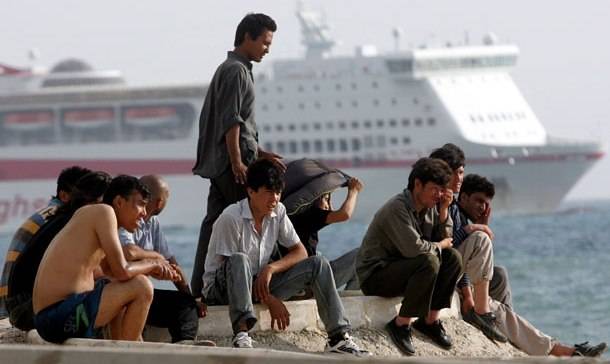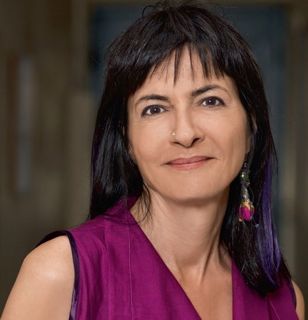Simona Peneva
Over a period of eighteen months, from June 2013 through November 2014, the European Asylum Support Office (EASO) has registered 13,289 applications for international protection (asylum) coming from Greece. 2,769 of these were filed by women, 10,520 by men, and 609 - by unaccompanied minors. The applicants hail from 96 countries, with the highest numbers coming from Afghanistan, Pakistan, Albania, Syria, Bangladesh, Georgia, Egypt, Nigeria, Iran, Sudan, and Eritrea. Only 1,764 were granted asylum at first instance during these 18 months, or one in every four asylum seekers.
It is worth noting that the number of Syrians seeking asylum in Greece has grown steadily, leading to an increase in the overall asylum-granting rate compared to 2013. For the European Union, asylum applications reached 500,000 in the first ten months of 2014, which is at least 10% higher than for the whole of 2013.
The average first instance processing time for asylum applications is 94 days. For those detained by administrative order and those in a deportation process this period is 68 days. Apart from shortening processing times, EASO is specifically focused on the quality of its procedures and, most of all, of its decisions. The Office is doing all it can to warrant all the rights provided for by national and European laws.
One of the main problems of most immigrants in Greece is that of Greek citizenship, which has proven tricky to obtain even after many years of legal residence in the country. Another big issue is the provision of shelter, food and proper living conditions for Syrian refugees.

"It is time to amend the migration code. So far, we have sought information about how many years the applicant’s parents had lived here, whereas now we shall automatically offer citizenship to all who have completed their education at a Greek school," says Angelos Syrigos, Secretary General of Population and Social Cohesion of the Hellenic Ministry of Interior.
What Mr. Syrigos’ department proposes are three categories for obtaining citizenship: nine years of education at a Greek school, six years at a secondary school or five years at a technical school or a university. In addition, it will not be checked whether or not the immigrant was legal during the rest of his/her stay in Greece: this will only be relevant during the period of education. On the matter of Syrian refugees, Mr. Syrigos said the only way for them to obtain some documents for the time being was to be accommodated at a shelter.
Ermina Kyprianidou, Vice-Governor of Attica, believes that "what we call migration problem is actually a clash between the individual and the state." She regards the mixing of peoples as a natural process in Europe, and one that has yielded the most beautiful fruits. She asked the audience when the government would start building shelters rather than prisons and when Greek citizens would stop turning a blind eye to all those people perishing on their land and sea borders.

The former president of the immigrant integration board of the Athens municipality, Maria Couveli, added that families, who had been compelled to come here and had found a second home on Greek soil, eventually cease to be immigrants and must be accepted as members of Greek society. "One doesn’t become Greek only through education, but rather through one’s social relations", she added.
 "The economic situation of a country, which is not in a crisis, improves by the process of migration. This is due to the fact that the arrival of more people adds to the workforce and production, as well as to the fact that a part of the immigrants start their own businesses. It turns out however that during a crisis the social contribution of immigrants is even more important," argued Antigone Lyberaki, professor of economics at Panteion University, Athens. "What we have to do is to widely open our doors, because of the demographic problem. At the moment, every young person accounts for three pensioners. How can one individual provide for the pensions of three? Therefore, we need more young people", she added.
"The economic situation of a country, which is not in a crisis, improves by the process of migration. This is due to the fact that the arrival of more people adds to the workforce and production, as well as to the fact that a part of the immigrants start their own businesses. It turns out however that during a crisis the social contribution of immigrants is even more important," argued Antigone Lyberaki, professor of economics at Panteion University, Athens. "What we have to do is to widely open our doors, because of the demographic problem. At the moment, every young person accounts for three pensioners. How can one individual provide for the pensions of three? Therefore, we need more young people", she added.
Another important factor is the flexibility of immigrants in the process of job seeking. Besides, the government is well-advised to focus on the chances for development of children rather than on the qualifications of their immigrant parents: Albert Einstein and Steve Jobs come as a good example as they were first and second generation immigrants." the history of the dodo is a good metaphor of our society: due to its inability to adapt to a new type of coexistence, the species went entirely extinct. Greek society must learn how to coexist with others in case it becomes the dodo of the 21st century," said Prof. Lyberaki.